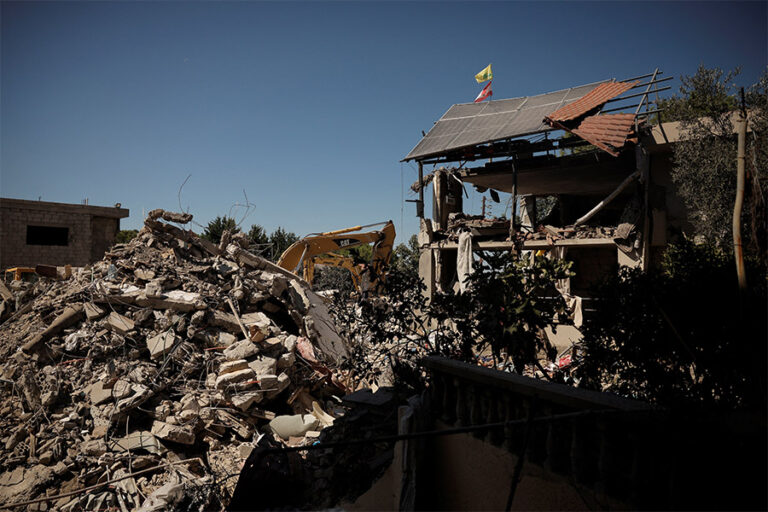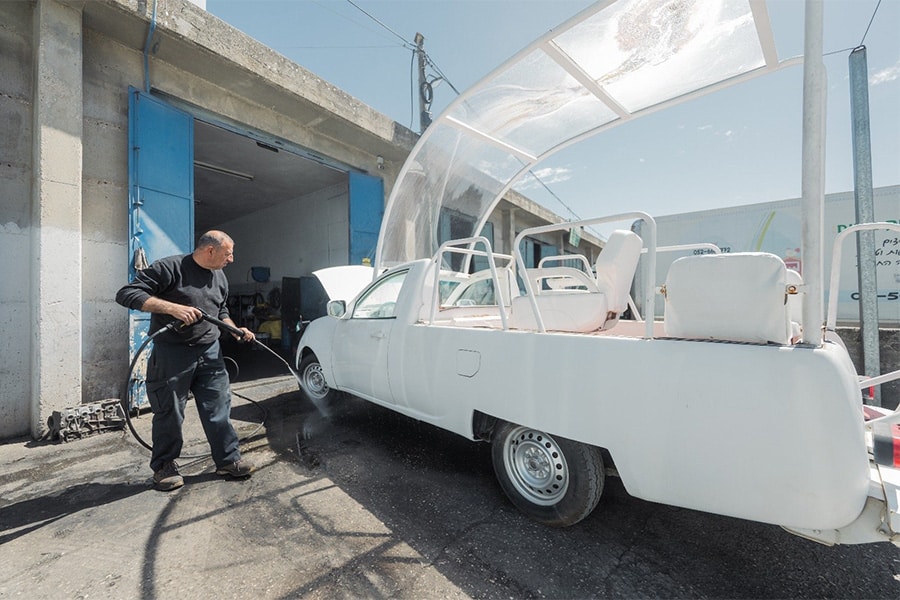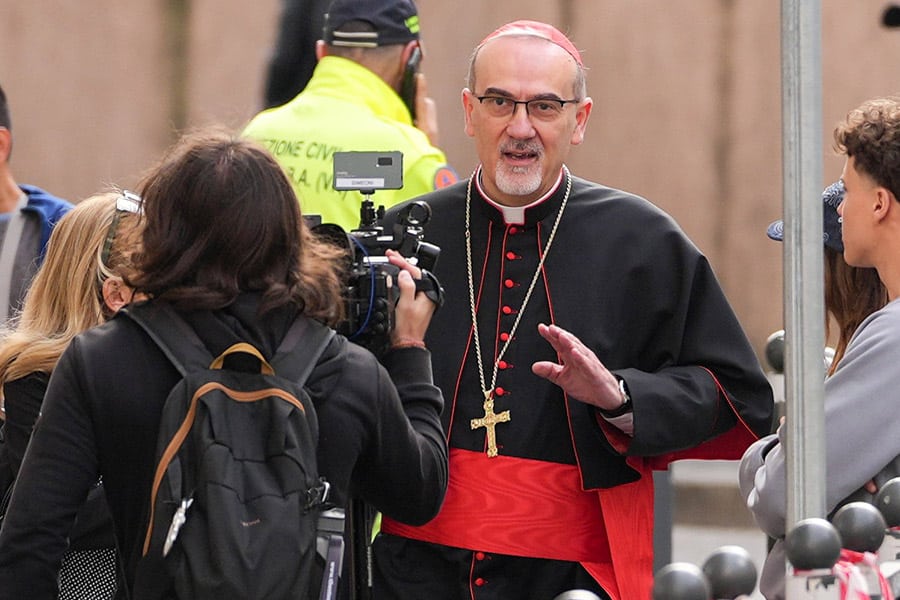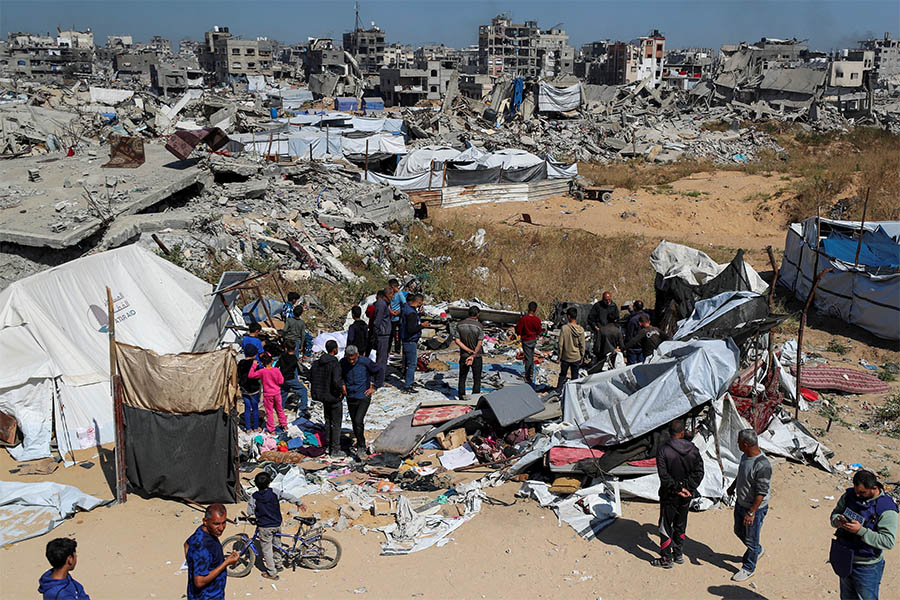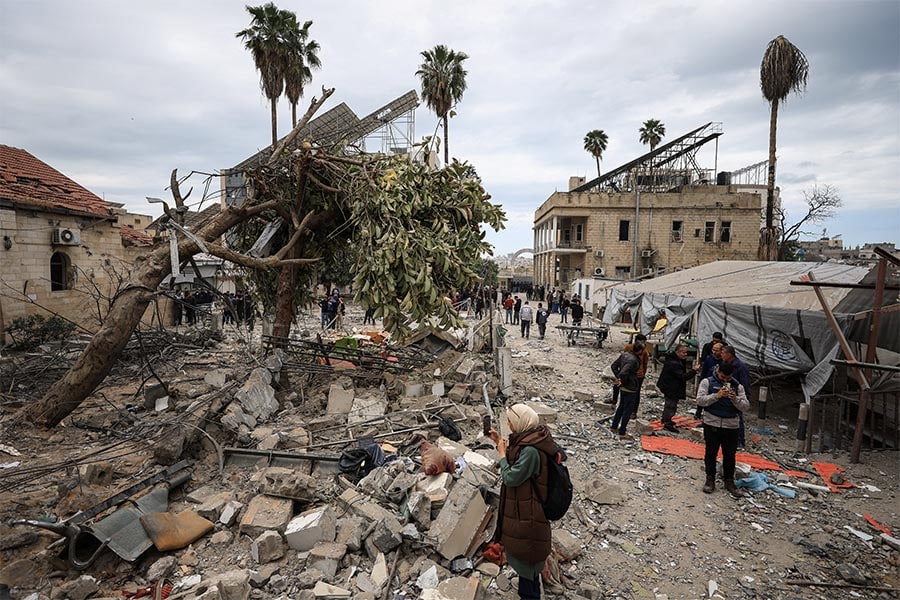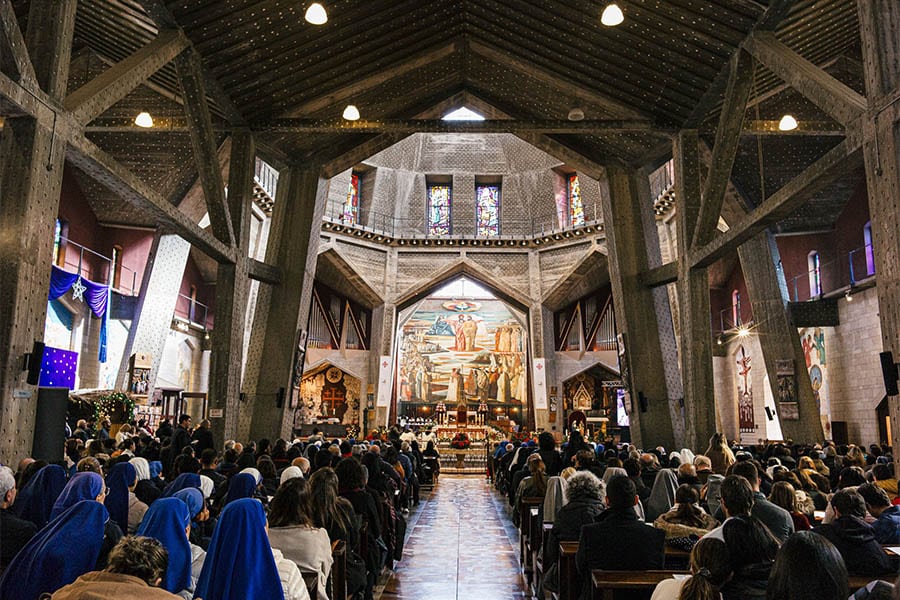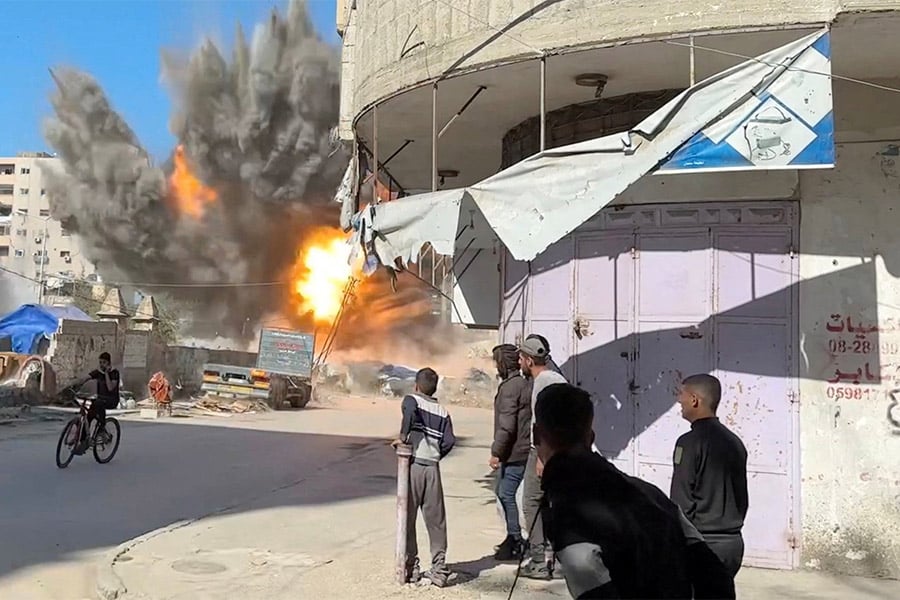As the Israel-Hamas war expands to include attacks in Lebanon — where the Iran-backed Shia militia Hezbollah is based — OSV News interviewed Michel Constantin, regional director for the Catholic Near East Welfare Association-Pontifical Mission in Palestine.
The mission, created by Pope Pius XII in 1949 and placed under CNEWA (which had been established by Pope Pius XI in 1926), has over the years come to provide support to the church throughout the Middle East
Speaking from his office in Beirut, Constantin shared with OSV News what he, his staff of 14 and those they serve are currently experiencing amid the conflict, which according to the United Nations has displaced more than 1 million across Lebanon as of Sept. 30.
This interview has been edited for length and clarity.
OSV News: Has the violence affected you or your staff directly?
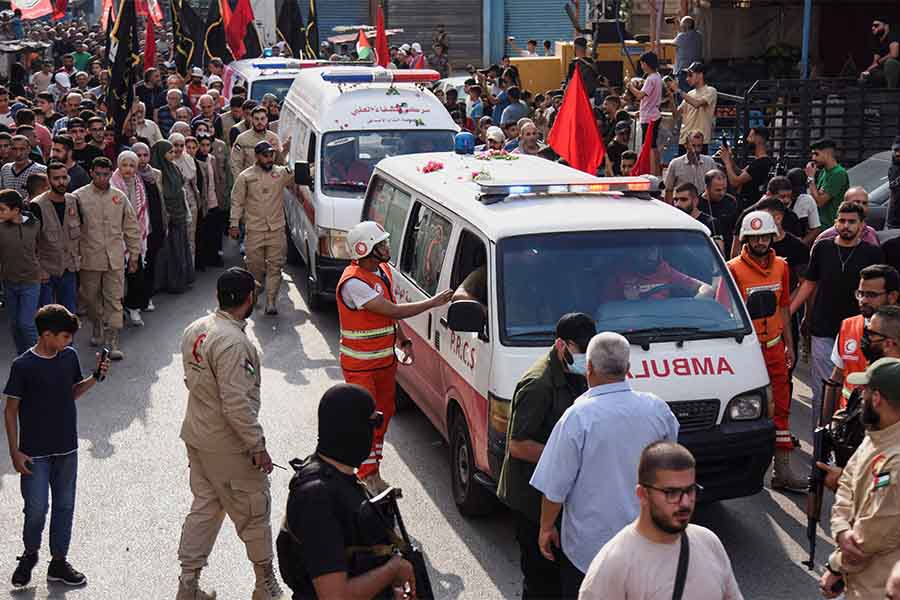
Constantin: No, because the raids against Christian villages are still limited. But we are afraid because … they will not give us a warning that “we’re going to fire (on) this village now or that village.” So, we are afraid, but none of us has been hurt or wounded.
For us, this is a déjà vu scenario, because we passed through this scenario in 2006 (during the 34-day Lebanon war between Israel and Hezbollah), and it was disastrous.
Now, it’s even worse, because they are not only attacking the areas where Hezbollah is active. They are also attacking where they suspect even one Hezbollah (member) is hiding or is going to visit. Even if the whole village is a Christian village, and you have one house that is hosting one member of Hezbollah, this could be a reason to bomb the village.
Before, if you were not in the south of the country, you were safe. Now, you are at risk everywhere in Lebanon.
A few days ago there was a military raid against a village just one mile away from the shrine of St. Charbel (located in Annaya). So it’s not only the Israelis attacking Hezbollah, the military, or even the environment of Hezbollah, the Shiite villages, but also all Lebanon is … a dangerous zone.
OSV News: What are those you’re mandated to serve experiencing, and how are you helping them?
Constantin: We still have 3,000 to 4,000 Christian families living just on the border with Israel in the middle of the war, and they refuse to leave because they don’t have Hezbollah people inside the village. But the area around the village is very dangerous. So they are staying there, unable to move.
We decided to support them with food because the supermarkets are empty. They don’t have enough money. It’s currently harvest season for olives, and those in the south of Lebanon, olive oil is a major source of income for the families who live there. They rely on this season, and now they cannot move to the field and to get to pick their olives and the crop will be lost.
People are in need. They have no income, no jobs, nothing, and they are stuck in their villages.
We have massive displacement from the south. … We think there are around 250,000 who have left in the last five days. This is in addition to another 100,000 that have left since Oct. 7 of last year (2023, when Hamas attacked Israel, launching the Israel-Hamas war. — Ed.).
There was shelling on both sides and 100,000 Lebanese left their villages in the south to find safer areas. Now, to this, we have to add the 250,000 who were forced to leave. It’s important to know that they left not because they were afraid, but because they were warned by the Israeli army through messages on their phones that they would have to leave their houses in two hours, otherwise they will die there. And actually, some people didn’t go, and they were bombarded in their house where they were still inside, and they were killed.
So they left in a chaotic and massive way. The road between Tyre (in southern Lebanon) and Beirut usually takes less than two hours. But it took 14 and 18 hours for (refugees) to get to Beirut. The road was packed with cars, and people — including children — had no food, no water in their cars for 14 to 18 hours. Some people came on their own and provided sandwiches and water for the children. This was an unprecedented way to leave.
How do we help them? Through the heroic work of the church.
We send the food parcels to the closest safe village in an area. And then the priest will coordinate with one truck to go and get the number of parcels he needs to distribute. He will see when it is a good time to distribute — when there is less shelling. He will find a way to get those items and to distribute them to the people.
Without the church, we couldn’t do anything ourselves. Actually, we have now received the first pledge in an emergency appeal that we have launched for 100,000 euros (US$110,551) from Missio in Germany (part of the Catholic Church’s Pontifical Mission Societies). All our work passes through the church channels, archbishoprics, parishes, congregations, church institutions like the Society of St. Vincent of Paul.
So, we work through the church, always through the church. We don’t rely on the government’s services because it’s not viable. Even when there is no war, we always rely on a parallel system.
OSV News: How are those you serve — and you and your team — holding up spiritually?
Constantin: This is different according to your political affiliation. We have two different points of view in Lebanon.
The people who are with Hezbollah say, “Well, this is our duty. … We are martyrs, and we have to fight Israel,” and so on.
The rest, like the Christians who are in the area, have a different view. They say, “It’s not our war. This is a war for Gaza. We can be in moral solidarity, we can pray for them, we can support them with money if we can, but we don’t have to die for them. Because even if we die for them, this will not make any difference; the same casualties will remain, the same brutality will remain against Gaza, even if we are in the war or not. So why should we jeopardize our communities, our villages?”
The country is very fragile, very weak economically. And they know that we cannot stand against the army of Israel, which is very big and very powerful and can destroy us completely. We can make them uncomfortable, but we cannot beat them. So this is the thought of the majority of the Christians and the Druze and the Sunni who are not with Hezbollah.
While some people are with Hezbollah … they are not a majority, because no one in Lebanon is a majority. Lebanon is a complex of minorities — the Christians are minority, the Sunni are minority, the Shia are minority, the Druze are minorities. We’re all minorities. Two or three minorities united would make a majority, and if we say the Christians and the Sunni and the Druze are against (Hezbollah), then they are a majority.
We hope U.S. mediation to reach a cease-fire works out. We are praying for that and we hope it will work. Otherwise, we will be destroyed.
Lebanon is not a brutal country, despite all the bad news. Lebanon used to be the Switzerland and the Paris of the Middle East — the best doctors, the best university teachers, the best universities.
Now we are hostages of a foreign agenda, starting in Iran, and with their arms in Lebanon. The Lebanese are very educated, very capable and can easily reconstruct the country. But we need help from the West to regain our freedom, to regain our neutrality and our capacity to live again the way we want.
Read More Conflict in the Middle East
Copyright © 2024 OSV News

